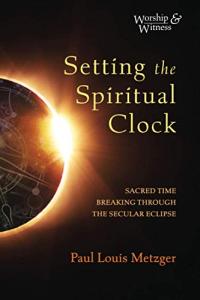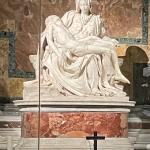
Today marks Epiphany, which means “manifestation.” Epiphany highlights one, two, or three biblical accounts depending on one’s Christian experience and tradition. It features one or more of the following events: the wise men’s visitation, worship, with giving of gifts to the toddler Jesus in Bethlehem (Matthew 2:1-12); the baptism of Jesus by John the Baptist in the Jordan River (2:13-17); Jesus turning water into wine at a wedding in Cana of Galilee (John 2:1-12). We find in each account that Jesus’ glory as God’s light shines in dark, desolate, and unassuming places. In fact, God’s glorious light shines brightest there. This post highlights this theme in Scripture and applies it to daily life.
Further to what was noted above, Mary gave birth to Jesus in Bethlehem. Bethlehem is known as the town of David, where the Messiah was destined to be born. But apart from that designation, it was not worth much for those on a middle east tour prior to Jesus’ coming. The shepherds who hurried to pay their respects to Jesus and his parents on the night of Jesus’ birth, and later, the wise men from the east, were really the first to take note of Bethlehem’s importance in the grand scheme of things.
Micah 5:2 makes note of Bethlehem’s apparent lack of significance, which makes it striking that God would choose that place for the Messiah’s birth:
“But you, Bethlehem Ephrathah,
though you are small among the clans of Judah,
out of you will come for me
one who will be ruler over Israel,
whose origins are from of old,
from ancient times.”
Certainly, Bethlehem was David’s town of birth. But who was David prior to God’s selection of him? He was the youngest and thereby least in his family; he was a shepherd boy. Even the great prophet Samuel missed out on recognizing which of Jesse’s sons was chosen to replace Saul. As God makes clear to Samuel, people look on the outside appearance, whereas God looks at the heart (1 Samuel 16:7). And who after all was Israel in the global scheme of things? Even in its heyday under David’s son, Solomon, it was never a vast empire on the scale of Egypt, Babylon, Greece, or Rome.
Bethlehem was so insignificant on the large scale of things that King Herod had no idea of its presumed threat to his own kingdom until the wise men appeared and the chief priests and teachers of the law referred him to Micah’s prophecy (See Matthew 2:6). Herod immediately set about seeking to destroy the Messiah, even as a toddler, upon coming to terms with this prophecy.
Moving on to the next biblical account, Jesus was baptized by John the Baptist in the wilderness, which is where John lived and ministered. God’s great forerunner lived and worked in an obscure, desolate place rather than make the royal and priestly halls of grandeur in Jerusalem his abode. Jesus himself came from a relatively obscure place—Nazareth in Galilee of the Gentiles. Their geographical location may very well serve as a prophetic critique of the religious and political establishment. Contrary to where we would often locate glory, the Bible readily emphasizes God’s operations taking place in unassuming places.
It is also worth noting here that John the Baptist did not even recognize Jesus as the Messiah, if we take into account his testimony in John 1. Along with Nathaniel later in John chapter 1, John would not have realized that Jesus is Bethel—the ‘place’ where God dwells, on whom angels descend and from whom they ascend (John 1:50-51), apart from God making known to him that the Messiah was the one on whom the Spirit would descend (John 1:32-34). Jesus is so unassuming.
Lastly, Jesus performs the very first of his recorded signs in John’s Gospel at a wedding in Cana of Galilee. We find no mention of dignitaries making their appearance, no palatial splendor. The text seems to convey a down-to-earth setting without a lot of fanfare. It appears that only Jesus’ family, followers, and wedding servants knew of the miracle he performed there, certainly not the other guests, and not even the master of the banquet (John 2:9). The wedding party and master of ceremonies would likely have been embarrassed if the majority of guests knew of Jesus’ action that saved the wedding party from disaster. But Jesus does not appear one bit interested in drawing attention to himself or making known what he had done to save the day. Even so, his glory was revealed to those closest to him, and his disciples believed in him (John 2:9).
I need to train my eye to see God’s light appear in dark, desolate, and unassuming places. Like most people, I often fix my gaze on glitter, and where there is grandeur and glee. But Jesus is so often revealed in hiddenness and hidden in revelation, as Martin Luther and Karl Barth maintained. Jesus wore no halo. His holiness was not for show, but for showering mercy on people and telling them to tell no one about his compassion and kindness.
Slowly, ever so slowly, I am coming to terms with this reality. I am training my eye to see God’s light shining brightest in dark, desolate, and unassuming places. Being bedside with my bed-ridden son the past three years has been the greatest education and spiritual exercise I have undertaken. The Lord Jesus has manifested his glory in the most unsuspecting places and faces, from my brain injured and minimally conscious son to a CNA and other residents in what many would take to be a God-forsaken place, and among those who support Christopher and his family sacrificially in so many unassuming though life-saving ways.
God shines the divine light through them as a striking contrast to the sad reality that people are often forgotten and left to rot at long-term care facilities and nursing homes. But against this backdrop, Jesus is the divine doctor who does visitations. What an epiphany! If Jesus’ light shines brightest in these locations, where and how will I seek to reflect his light to others?
You and I can take comfort from the fact that if Jesus is so secure that he does not need Jerusalem or Rome, Washington D.C., New York, or LA to be the site for the greatest show on earth, the same can be true for us. The fact that Jesus later remains largely quiet in the High Priest’s and Pilate’s presence, and completely quiet in the face of Herod’s prodding during his trials should shatter our ear drums. He does not need their approval or anyone’s endorsement. As John’s Gospel makes clear, he does not need human testimony for his person or miraculous works, since he knows people seek the glory of other humans, not God (See John 2:23-25; John 5:41-44).
As we come to train our gaze on Jesus, we will experience an epiphany: we will be filled with wonder that the light of his glory shines brightest in the darkest, most desolate, and unassuming places on earth. May we be on the lookout for Jesus’ manifestation in such settings and reflect his unassuming glory today.
 Here is the link to a recent interview I did with Byron Borger of Hearts & Minds Bookstore on my book, Setting the Spiritual Clock: Sacred Time Breaking Through the Secular Eclipse, Worship & Witness series (Cascade, 2020). To find out more about the book, please refer here. To read the various posts over the past three years on my family ‘s journey with TBI, please click on this link. Thank you for your prayers. God bless you as you also train your eye to see Jesus’ light, which shines brightest in dark, desolate, and unassuming places!
Here is the link to a recent interview I did with Byron Borger of Hearts & Minds Bookstore on my book, Setting the Spiritual Clock: Sacred Time Breaking Through the Secular Eclipse, Worship & Witness series (Cascade, 2020). To find out more about the book, please refer here. To read the various posts over the past three years on my family ‘s journey with TBI, please click on this link. Thank you for your prayers. God bless you as you also train your eye to see Jesus’ light, which shines brightest in dark, desolate, and unassuming places!














